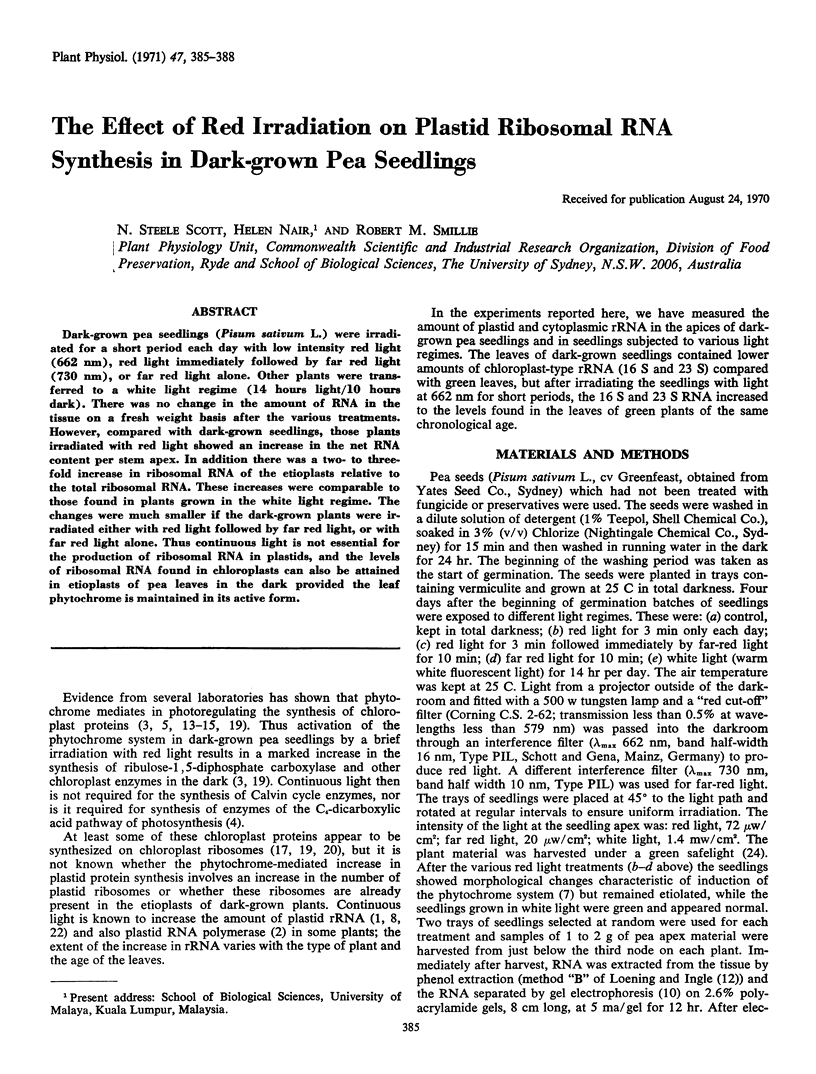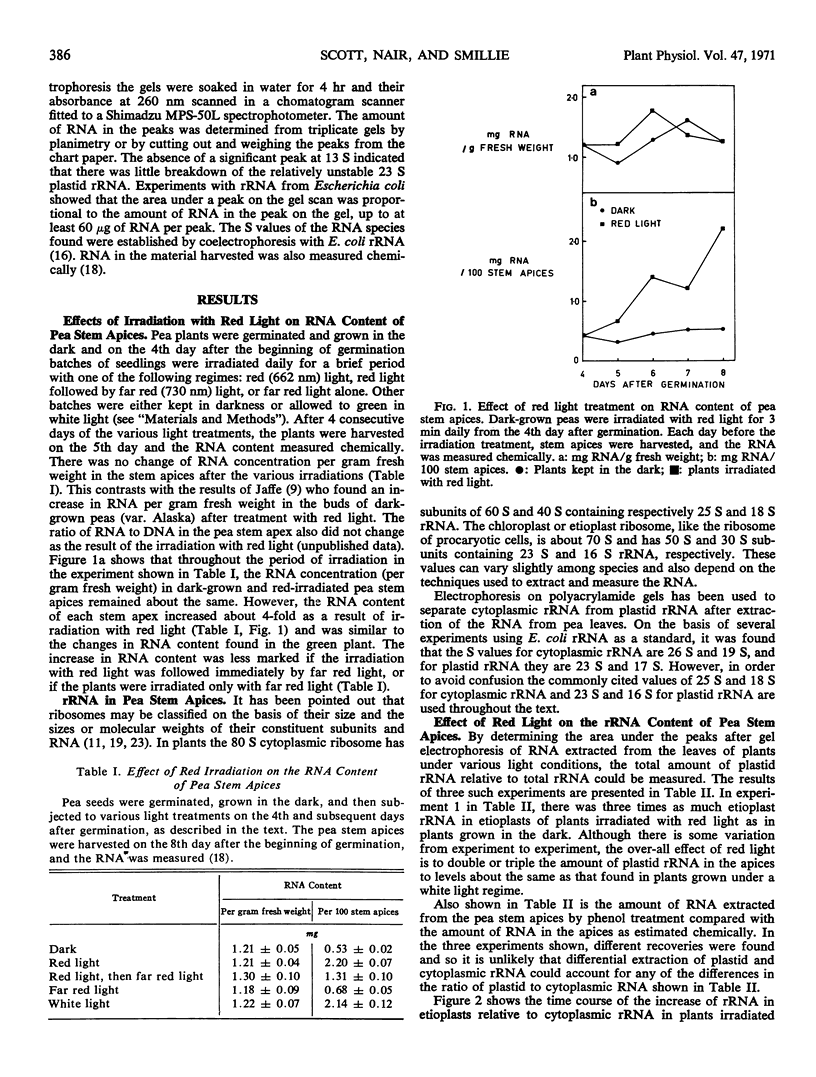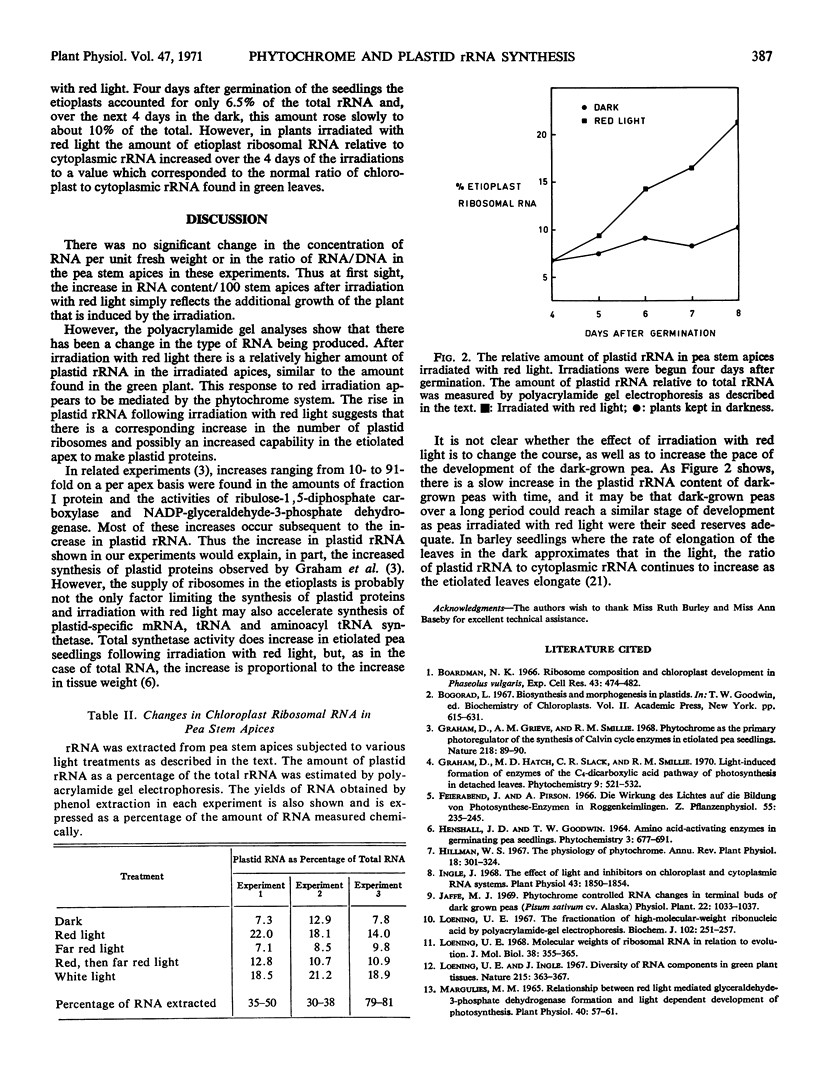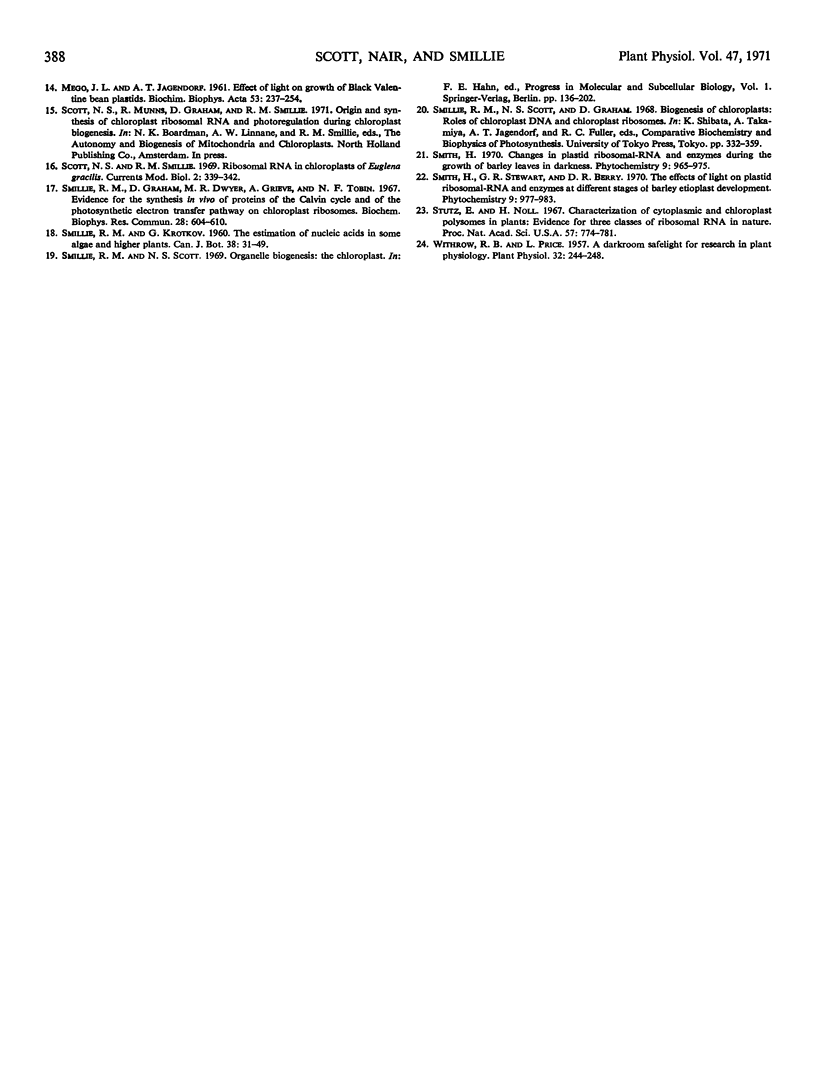Abstract
Dark-grown pea seedlings (Pisum sativum L.) were irradiated for a short period each day with low intensity red light (662 nm), red light immediately followed by far red light (730 nm), or far red light alone. Other plants were transferred to a white light regime (14 hours light/10 hours dark). There was no change in the amount of RNA in the tissue on a fresh weight basis after the various treatments. However, compared with dark-grown seedlings, those plants irradiated with red light showed an increase in the net RNA content per stem apex. In addition there was a two- to three-fold increase in ribosomal RNA of the etioplasts relative to the total ribosomal RNA. These increases were comparable to those found in plants grown in the white light regime. The changes were much smaller if the dark-grown plants were irradiated either with red light followed by far red light, or with far red light alone. Thus continuous light is not essential for the production of ribosomal RNA in plastids, and the levels of ribosomal RNA found in chloroplasts can also be attained in etioplasts of pea leaves in the dark provided the leaf phytochrome is maintained in its active form.
Full text
PDF



Selected References
These references are in PubMed. This may not be the complete list of references from this article.
- Boardman N. K. Ribosome composition and chloroplast development in Phaseolus vulgaris. Exp Cell Res. 1966 Sep;43(2):474–482. doi: 10.1016/0014-4827(66)90074-7. [DOI] [PubMed] [Google Scholar]
- Ingle J. The effect of light and inhibitors on chloroplast and cytoplasmic RNA synthesis. Plant Physiol. 1968 Nov;43(11):1850–1854. doi: 10.1104/pp.43.11.1850. [DOI] [PMC free article] [PubMed] [Google Scholar]
- Loening U. E., Ingle J. Diversity of RNA components in green plant tissues. Nature. 1967 Jul 22;215(5099):363–367. doi: 10.1038/215363a0. [DOI] [PubMed] [Google Scholar]
- Loening U. E. The fractionation of high-molecular-weight ribonucleic acid by polyacrylamide-gel electrophoresis. Biochem J. 1967 Jan;102(1):251–257. doi: 10.1042/bj1020251. [DOI] [PMC free article] [PubMed] [Google Scholar]
- Smillie R. M., Graham D., Dwyer M. R., Grieve A., Tobin N. F. Evidence for the synthesis in vivo of proteins of the Calvin cycle and of the photosynthetic electron-transfer pathway on chloroplast ribosomes. Biochem Biophys Res Commun. 1967 Aug 23;28(4):604–610. doi: 10.1016/0006-291x(67)90356-7. [DOI] [PubMed] [Google Scholar]
- Withrow R. B., Price L. A Darkroom Safelight for Research in Plant Physiology. Plant Physiol. 1957 May;32(3):244–248. doi: 10.1104/pp.32.3.244. [DOI] [PMC free article] [PubMed] [Google Scholar]


